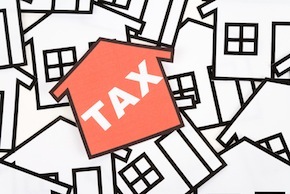All Categories
Featured
Table of Contents
Tax lien investing can provide your portfolio exposure to real estate all without needing to in fact have home. Professionals, however, say the procedure is made complex and warn that newbie financiers can conveniently get shed. Below's everything you need to learn about investing in a tax obligation lien certificate, consisting of how it functions and the threats included.
The notice commonly comes prior to harsher activities, such as a tax obligation levy, where the Irs (INTERNAL REVENUE SERVICE) or neighborhood or local federal governments can in fact seize a person's residential or commercial property to recoup the financial obligation. A tax obligation lien certification is developed when a homeowner has actually stopped working to pay their taxes and the city government issues a tax lien.
Tax lien certificates are typically auctioned off to investors seeking to profit. To recover the delinquent tax dollars, communities can then sell the tax obligation lien certification to exclusive financiers, who care for the tax obligation bill for the right to collect that money, plus passion, from the homeowner when they at some point pay back their equilibrium.
How Tax Lien Investing Works
allow for the transfer or assignment of delinquent real estate tax obligation liens to the exclusive industry, according to the National Tax Obligation Lien Association, a not-for-profit that represents governments, institutional tax obligation lien investors and servicers. Right here's what the procedure looks like. Tax obligation lien financiers have to bid for the certificate in an auction, and exactly how that process functions depends upon the details district.
Contact tax obligation officials in your area to make inquiries just how those delinquent taxes are accumulated. The district establishes an optimum rate, and the bidder using the cheapest passion price below that optimum wins the public auction.
Other winning quotes most likely to those that pay the highest possible money quantity, or premium, over the lien amount. What happens following for capitalists isn't something that occurs on a supply exchange. The winning bidder needs to pay the whole tax obligation expense, consisting of the overdue financial obligation, interest and fines. The financier has to wait up until the residential or commercial property proprietors pay back their whole balance unless they do not.
While some financiers can be compensated, others may be captured in the crossfire of complex guidelines and technicalities, which in the worst of conditions can cause hefty losses. From a simple revenue viewpoint, a lot of financiers make their cash based upon the tax obligation lien's rate of interest price. Rates of interest vary and depend on the jurisdiction or the state.
Profits, nevertheless, do not always amount to returns that high throughout the bidding procedure. In the end, the majority of tax obligation liens bought at auction are cost prices in between 3 percent and 7 percent country wide, according to Brad Westover, executive director of the National Tax Lien Association. Prior to retiring, Richard Rampell, previously the president of Rampell & Rampell, an accountancy firm in Palm Beach, Florida, experienced this firsthand.
Investing In Tax Lien Certificates For Beginners
Then large institutional capitalists, including financial institutions, hedge funds and pension funds, went after those higher returns in auctions around the country. The bigger capitalists aided bid down interest rates, so Rampell's team wasn't making significant money anymore on liens.
Yet that rarely takes place: The tax obligations are typically paid before the redemption day. Liens additionally are first eligible settlement, also prior to mortgages. However, tax obligation liens have an expiration day, and a lienholder's right to seize on the building or to collect their financial investment expires at the same time as the lien.
Private financiers that are taking into consideration investments in tax obligation liens should, above all, do their homework. Professionals recommend avoiding residential properties with environmental damages, such as one where a gas terminal discarded dangerous material.
How To Invest In Tax Liens Online
"You ought to really comprehend what you're purchasing," claims Richard Zimmerman, a companion at Berdon LLP, an accountancy firm in New york city City. "Understand what the residential property is, the neighborhood and worths, so you do not purchase a lien that you will not be able to collect." Prospective investors ought to likewise look into the residential property and all liens against it, along with recent tax sales and sale costs of similar homes.
Yet, keep in mind that the information you locate can often be outdated. "Individuals obtain a listing of homes and do their due persistance weeks before a sale," Musa claims. "Fifty percent the residential properties on the checklist may be gone because the tax obligations make money. You're squandering your time. The closer to the day you do your due persistance, the far better.
How To Start Tax Lien Investing

Westover says 80 percent of tax lien certifications are sold to participants of the NTLA, and the agency can typically pair up NTLA participants with the appropriate institutional financiers. That could make managing the process simpler, specifically for a beginner. While tax lien financial investments can offer a charitable return, know the small print, information and policies.
"However it's made complex. You need to comprehend the details." Bankrate's added to an update of this story.
Real estate tax liens are a financial investment niche that is forgotten by the majority of capitalists. Investing in tax obligation liens can be a rewarding though reasonably dangerous company for those who are educated regarding genuine estate. When people or services fail to pay their residential property tax obligations, the towns or other government bodies that are owed those tax obligations position liens versus the buildings.
How To Invest In Property Tax Liens
These insurance claims on security are also traded among financiers that wish to produce above-average returns. Through this process, the town obtains its taxes and the capitalist gets the right to collect the quantity due plus interest from the borrower. The process hardly ever finishes with the investor confiscating possession of the building.
If you need to confiscate, there might be other liens versus the building that keep you from taking possession. You can also invest indirectly by means of residential or commercial property lien funds.
It successfully binds the residential or commercial property and prevents its sale up until the proprietor pays the taxes owed or the home is seized by the lender. When a landowner or house owner fails to pay the taxes on their residential or commercial property, the city or region in which the property is located has the authority to position a lien on the building.
Home with a lien connected to it can not be sold or refinanced until the taxes are paid and the lien is removed. When a lien is issued, a tax lien certification is produced by the municipality that shows the amount owed on the property plus any kind of passion or charges due.

It's estimated that an additional $328 billion of residential or commercial property tax obligations was assessed across the United state in 2021. It's tough to evaluate nationwide residential or commercial property tax obligation lien numbers.
Latest Posts
What is the process for investing in Exclusive Real Estate Deals For Accredited Investors?
Qualified Investor Criteria
Is Tax Liens A Good Investment